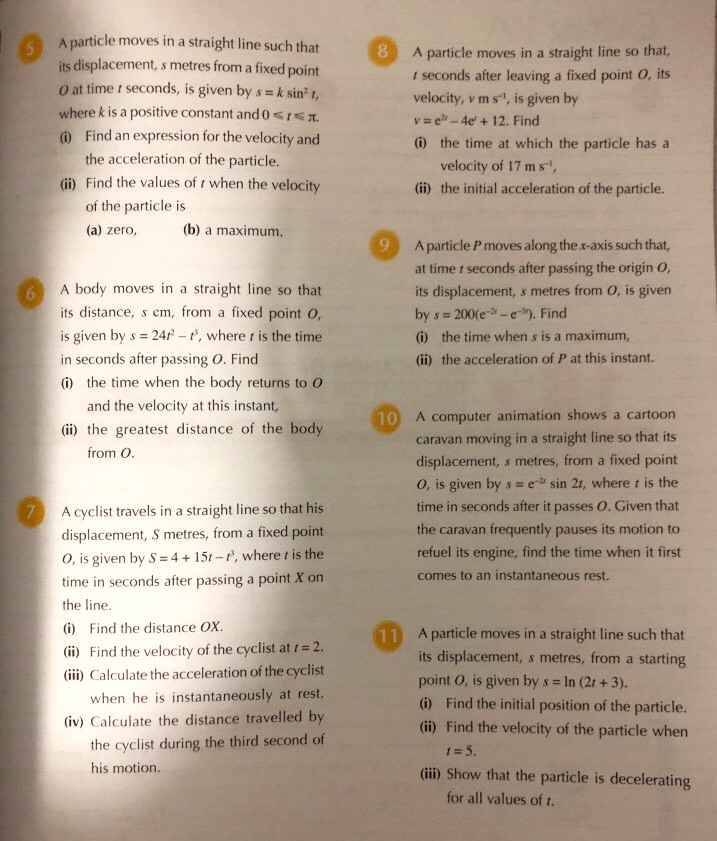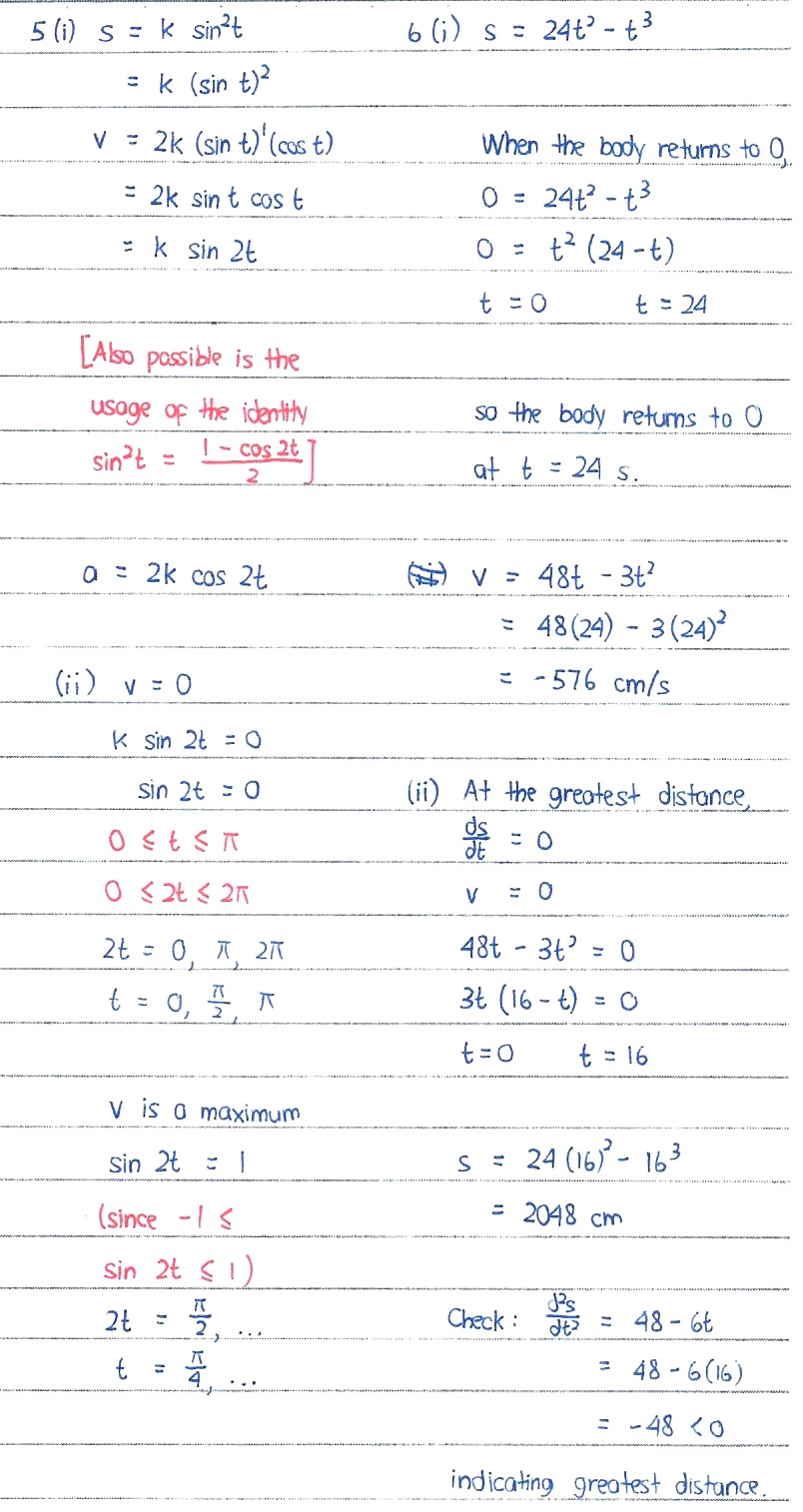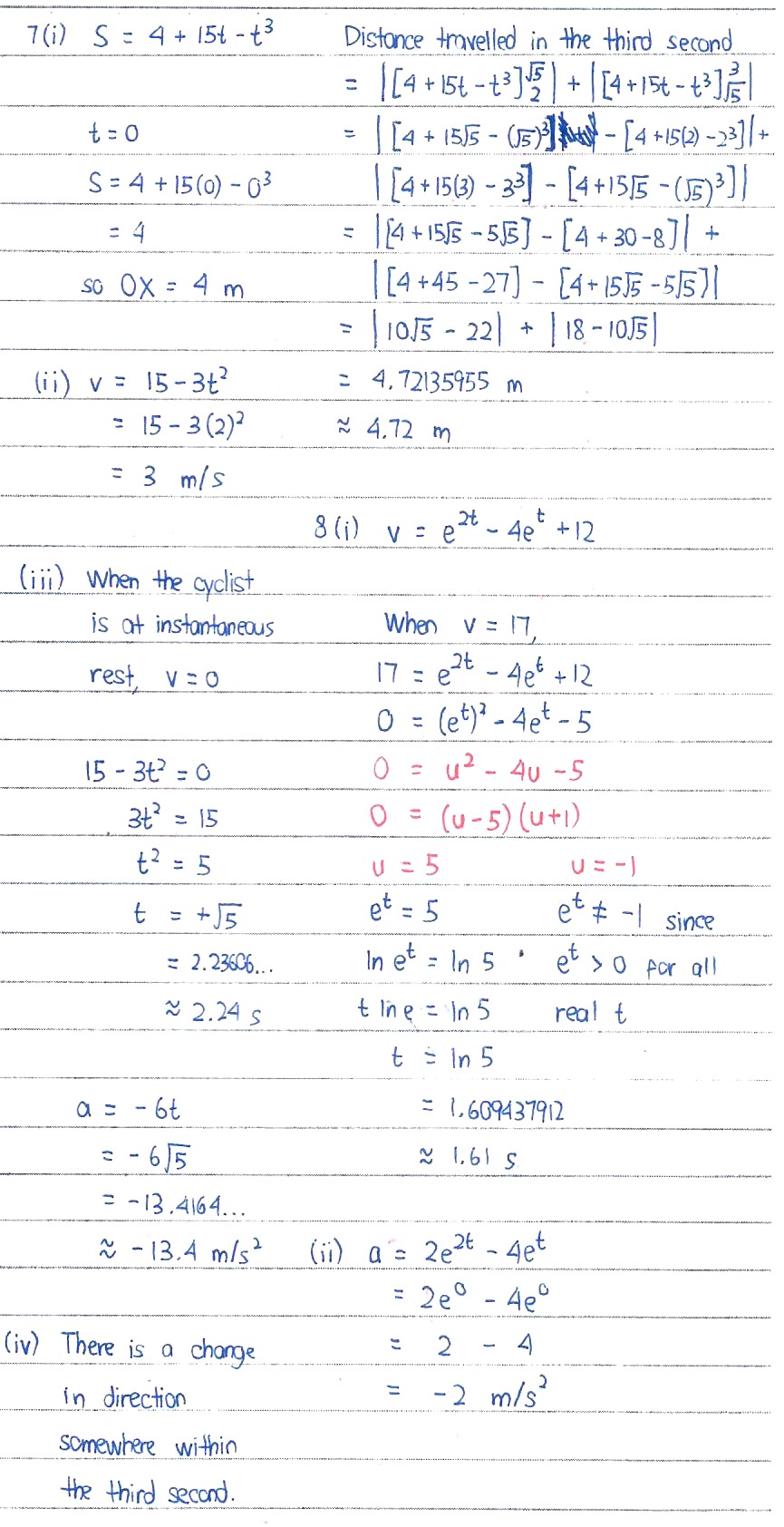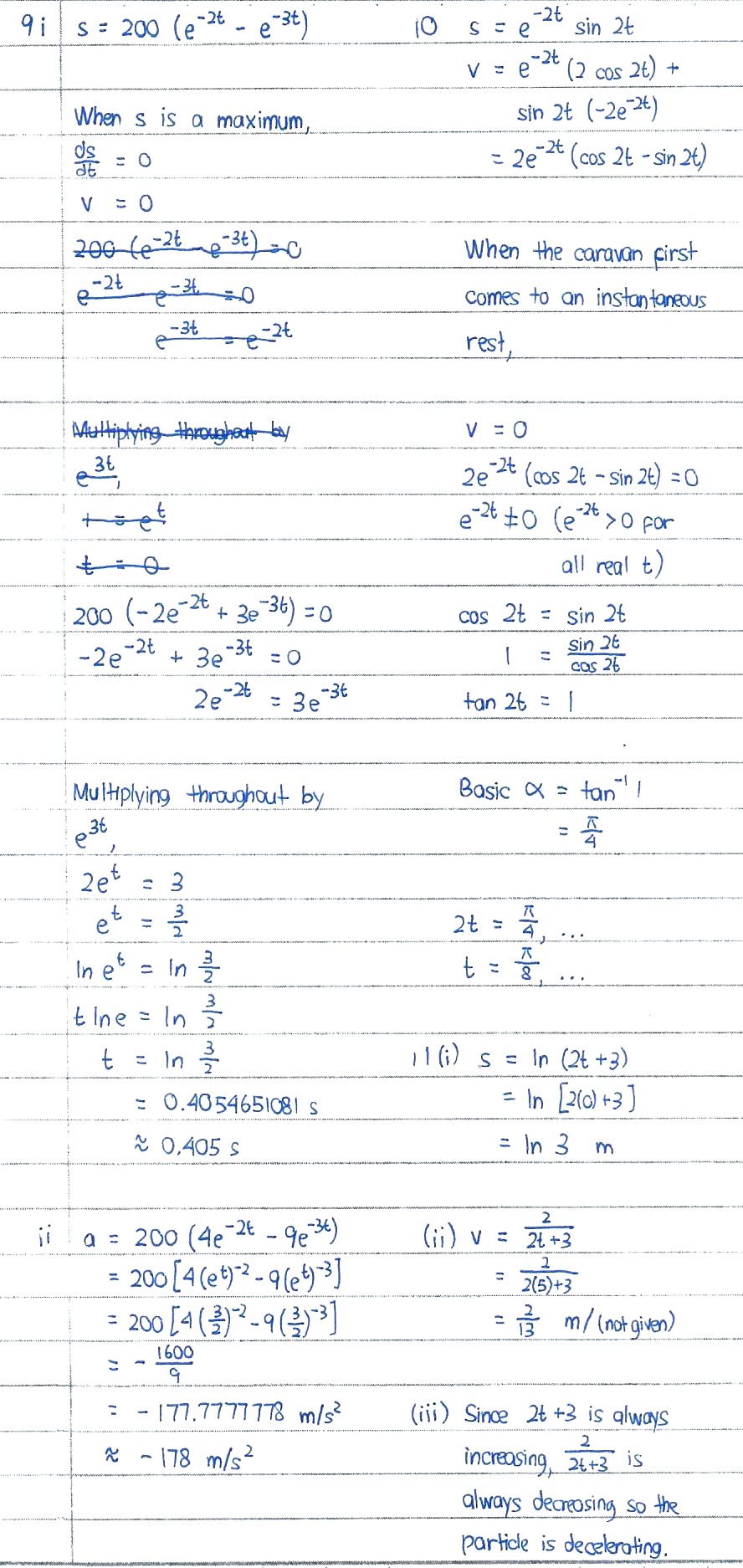Ask Singapore Homework?
Upload a photo of a Singapore homework and someone will email you the solution for free.

Question
secondary 4 | A Maths
3 Answers Below
Anyone can contribute an answer, even non-tutors.

Thank you
See 3 Answers
To be fair, for Q6, the greatest distance from O is infinity, since the particle turns only at t = 16 s and then moves all the way in the same direction without ever stopping again.
Remember that although differentiation and integration are the more recent topics you have been doing, you must not forget the earlier topics such as the solving of exponential equations.
Q11 (iii) is the same as "show that the function is decreasing for all values of t". This particular example is straightforward so I bypass the usage of differentiation. The differentiation way is to show that the derivative of v i.e. the derivative of 2/(2t + 3), which equals -4/(2t + 3)^2, is always negative since (2t + 3)^2 > 9 > 0 for all t > 0.
End of session.






